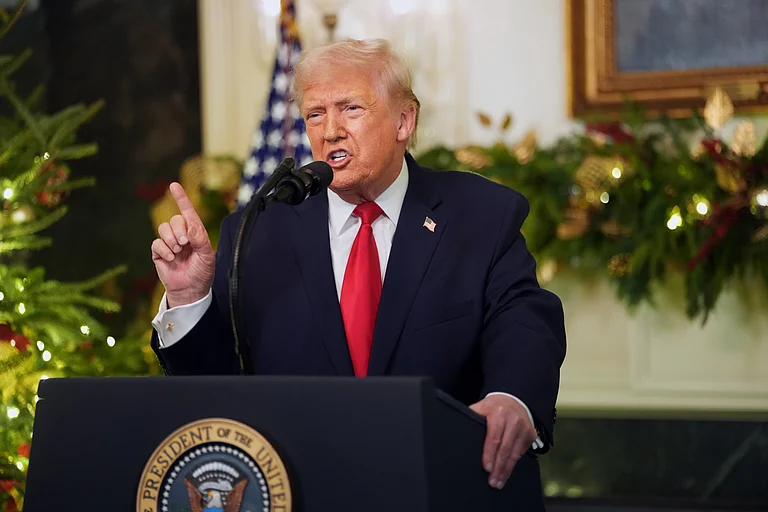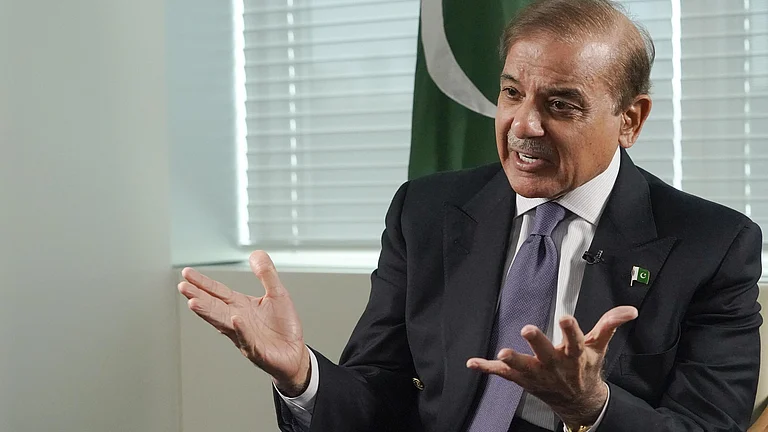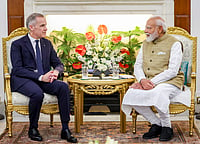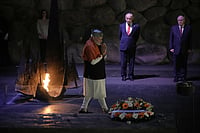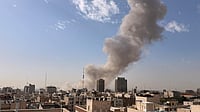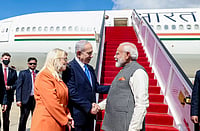As Pakistan gets ready to swear in a new government after the two legacy parties of the country —the Pakistan Muslim League-Nawaz (PML-N) and the Pakistan People’s Party (PPP)— hammered out a power-sharing agreement, there is anger in the street. The PML-N’s Shehbaz Sharif is to be the next Prime Minister of Pakistan and PPP’s Asif Ali Zardari will get the plum post of the President of Pakistan, his second term as the head of state.
There is seething anger against the Pakistan Army chief General Asim Munir for his politics of vendetta against Imran Khan. There is also anger against the Election Commission for conducting a fraudulent election with widespread rigging to keep the Pakistan Tehreek-e-Insaf (PTI) out in the cold. People are also angry at the judiciary for falling in line with the establishment’s diktat. There is contempt for the PML-N and the PPP for conniving with the ‘establishment’ and announcing a coalition of convenience.
Zardari and Sharif have stitched up a coalition, but how long this marriage of necessity lasts is the question. The PPP has the upper hand in this arrangement and would be snapping at the heels of Shehbaz with the threat to pull down the government. Moreover, there has been no love lost between the two parties since their coalition experiment in 2022. Through the election campaign, Bilawal Bhutto Zardari had aimed his guns at the PML-N and not the PTI. In fact, the PPP had reached out to Imran Khan’s people but was disdainfully shrugged off. Imran is not someone who is likely to make friends with either the PPP or PML-N after having built his political career on bashing the two dynastic parties.
In this arrangement, the PML-N gets the National Assembly speaker’s post, the PPP the deputy speaker slot, the Senate chairpersonship goes to the PPP, and the deputy chairpersonship to the PML-N. The PPP has refused to be part of the federal government but is ready to accept ministerships in the provinces.
Sitting in opposition will be Imran-backed independent candidates, who despite all efforts by the military won the maximum number of seats in the National Assembly. This time, the PTI was thwarted tooth and nail by the army that had colluded to place Imran in power in the 2018 elections. The PTI now rightly claims that the 2024 mandate was stolen from Imran.
Senior PTI leader, barrister Gohar Ali Khan, believes that his party must be given the constitutional and democratic right to form a strong government in Khyber Pakhtunkhwa, Punjab, and at the Centre. “To shield Pakistan from destructive political instability and to steer the economy towards development and stability, it is imperative to refrain from undermining the people’s mandate…returning the seats taken from the PTI, and replacing unconstitutional and illegal selections for power with the PTI, which holds the people’s mandate, is essential, said Khan.
“Show some grace and step aside from government,” PTI leader Asad Qaiser told the PPP and PML-N members. He was talking to reporters after meeting Imran at the Adiala jail. He said Shehbaz did not have the public mandate to be the PM as the party did get enough votes in the elections. He did not spare the PPP either: “The PPP is telling the people that they are not a part of the government […] but you are taking the post of Senate chairman on their [PML-N’s] vote.”
Imran had built his political career by painting the two main parties as villains responsible for looting the country of its wealth and blamed them for the current problems of Pakistan. Taking the cue from their Kaptan, PTI’s support base believes that the PPP and PML-N had colluded with the army and the United States to topple his government. Imran later changed his story and thought it wiser to leave the United States out of the equation. But Imran has helped to paint these two parties as looters and bloodsuckers. There is a kind of visceral hate against them among a large section of people. Religious parties like the Jamaat-e-Islami echo similar views.
“The reign of two families was established that are imposed on the country for the past three decades,” said Jamaat-e-Islami (JeI) leader Sirajul Haq in a statement. Haq claimed that this “company” was responsible for inflation, unemployment, and all other challenges Pakistan was facing today.
“Their past, the tales of their corruption are in front of the nation,” said Haq.
Many Pakistanis tend to agree with Haq. A free and fair election would have put an end to the chaos and confusion in Pakistan. Instead the outcome of the rigged polls has further alienated and polarised the country.
What can a coalition government deliver at a time when the entire election process is being called into question? Shehbaz Sharif’s government is at the mercy of the PPP. What Pakistan needs at this moment of crisis is a national government made up of all political parties. Hard decisions that have to be taken in the next few months can best be delivered by an all-party government. Nawaz Sharif had called for one. However, the PTI is in no mood to join hands in a national government. Pakistan is so polarised that politicians cannot for a moment think beyond their petty squabbles.
Even if Imran were willing, however, would the powerful military allow it? After fighting tooth and nail against Imran and his party, the current military leadership will not tolerate the PTI in government.
“Although PTI’s surprising performance damaged the military’s reputation and mystique, the military’s ability to influence the course of events remains intact,” writes Husain Haqqani, Senior Fellow and Director for South and Central Asia at the Hudson Institute. The military remains in control despite questions now being raised against the army chief.
At a time when the country is in a deep economic crisis and major security threats from the Tehreek-e-Taliban Pakistan (TTP), the country needs a period of stability. That seems a herculean task in an atmosphere of instability. Pakistan has to repay roughly $78 billion before 2025. It also needs to have a new arrangement with the International Monetary Fund (IMF) and its allies China and the Gulf sheikdoms for more funds to sustain the economy. Taxes have to be raised on agriculture, retail, and real estate. Fuel and electricity prices further need to be increased. There will be popular unrest against a government that has to take these tough actions. No one will envy Shehbaz’s crown of thorns.








